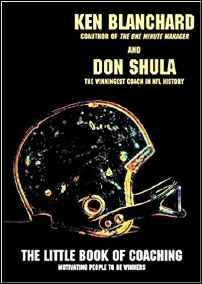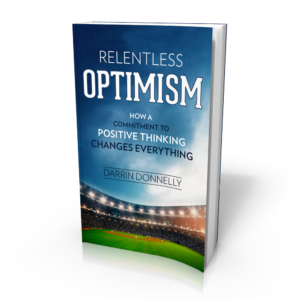 Vince Lombardi famously said, “Perfection is not attainable, but if we chase perfection we can catch excellence.”
Vince Lombardi famously said, “Perfection is not attainable, but if we chase perfection we can catch excellence.”
Well-intentioned people will often remind us that “nobody’s perfect.” They tell us this after a disappointment, encouraging us to bounce back quickly and to not beat ourselves up for failing to be perfect.
However, we have to be careful that we don’t lose the competitive edge that comes from striving for perfection. We don’t want to use the fact that perfection is unattainable as an excuse for not striving to be our very best.
Only once in the 96-year history of the National Football League has a team finished a season perfect—with no losses and no ties. That team was the 1972 Miami Dolphins, which won Super Bowl VII and finished the season with a 17-0 record.
Don Shula, the legendary coach of that team says that aiming for perfection was one of the keys to all of his teams’ success—even those teams that failed to finish undefeated…
What produced winning football teams for us over the years was our willingness to create practice systems and procedures that were aligned with our vision of perfection: We wanted to win them all.
Everything I did was to prepare people to perform to the best of their ability so they could aim for that target. And you do that one day at a time.
I believe if you want to hit a target you should aim for the bullseye. If you aim for the bullseye and miss, you’ll still hit the target. But if you are aiming only for the target and miss, you’re nowhere.
Maybe it was because I regarded an unbeaten NFL season as a possibility that the feat became a reality. In 1972, the Miami Dolphins won every game, including the Super Bowl. That was the thrill of a lifetime.
You may ask, “How can you do any better than that? How can you be better than perfection?” Well, you can’t. But it certainly set a standard that no one could forget and one toward which I wanted my (future) teams to always strive.
— Don Shula, from his book with Ken Blanchard The Little Book of Coaching
Only one of Don Shula’s teams actually finished the season with a perfect record. But by striving for perfection, Shula’s teams won two Super Bowls, one NFL championship, five AFC championships, and 347 games. Those 347 victories make Shula the winningest coach in NFL history.
The truth is, chasing perfection will rarely achieve perfect results. However, by simply aiming to be perfect, we set ourselves up for extraordinary success. Falling just short of perfection can still mean winning championships and achieving greatness.
What does perfection look like in your line of work? Is it an undefeated season? Is it becoming president of the company? Is it writing a No. 1 bestseller? Is it finishing first in sales?
Falling just short of whatever perfection looks like in your career still results in an exceptional achievement. Winning the championship with one or two losses is still a championship. Climbing to vice president of the company is still outstanding. Hitting No. 2 on the bestseller list still means boatloads of book sales. And you never would have reached those heights if you hadn’t aimed for perfection.
How you define perfection and whether you actually attain perfection is not what’s most important. It’s the aiming for perfection that is most important.
Lou Holtz once said, “If you don’t have total dedication to perfection in your life, then I believe your attitude toward life is flawed.”
This all comes back to striving to become the very best that you can become. What does the perfect version of you look like? What will it take to get there?
Only when you aim for the very top will you find out just how high you can climb.







